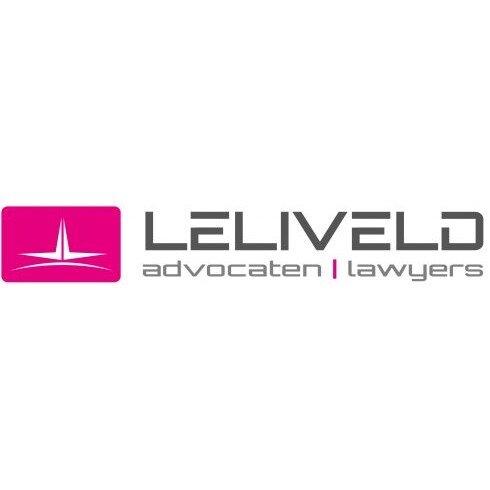Best Corporate Governance Lawyers in Maastricht
Share your needs with us, get contacted by law firms.
Free. Takes 2 min.
List of the best lawyers in Maastricht, Netherlands
About Corporate Governance Law in Maastricht, Netherlands
Corporate governance in Maastricht, Netherlands, forms the foundation for how companies are directed, managed, and controlled. Corporate governance refers to the set of processes, laws, and practices that shape the relationship between a company’s management, board, shareholders, and other stakeholders. In Maastricht, as in the rest of the Netherlands, these frameworks are designed to promote transparency, accountability, and ethical business behavior. Dutch law provides specific standards and regulations for both public and private companies, making corporate governance an essential consideration for businesses operating locally.
Why You May Need a Lawyer
Legal advice in corporate governance can be crucial in several scenarios, including:
- Launching a new business and setting up the right governance structure.
- Amending company statutes or shareholder agreements.
- Handling mergers, acquisitions, or restructurings.
- Navigating disputes among shareholders or directors.
- Ensuring compliance with local and national regulations.
- Addressing conflicts of interest within management.
- Providing guidance on corporate responsibility and sustainability requirements.
- Preparing for audits and risk assessments.
- Responding to investigations by Dutch regulatory bodies.
Qualified legal assistance ensures companies in Maastricht avoid costly mistakes and maintain a solid reputation with regulators, investors, and the public.
Local Laws Overview
In Maastricht, corporate governance is guided by Dutch national law, particularly the Civil Code (Burgerlijk Wetboek), and various sector-specific regulations. Key aspects include:
- The Dutch Corporate Governance Code: This code lays down principles for good governance in listed companies, including board structure, transparency, risk management, and shareholder rights.
- Legal Requirements for Boards: Dutch law defines requirements for establishing a board of directors, delineating the roles of executive and non-executive directors, as well as rules on board diversity.
- Shareholder Rights: Shareholders have clear statutory rights to information, voting, and to initiate actions if they believe directors are acting improperly.
- Compliance Obligations: Dutch companies must meet obligations relating to financial reporting, risk controls, and anti money laundering measures.
- Cross Border Regulations: Maastricht companies engaging internationally may need to consider both Dutch and European Union rules on corporate conduct and disclosure.
Failure to act in accordance with these standards can result in liability for directors and damage to the company's standing.
Frequently Asked Questions
What is the Dutch Corporate Governance Code?
The Dutch Corporate Governance Code provides guidelines for sound and transparent company management, focusing largely on listed companies. It covers issues such as board responsibilities, risk management, remuneration policies, and relations with shareholders.
Who must comply with the Corporate Governance Code in Netherlands?
Primarily, the Code applies to publicly listed companies in the Netherlands, but non listed companies in Maastricht may also adopt its principles voluntarily to demonstrate good governance.
Are there specific board composition requirements in Maastricht?
Yes, Dutch law requires companies to have a clearly defined board structure. For large companies, there are minimum standards for board diversity and independent non executive directors.
How do shareholders exercise their rights?
Shareholders in Dutch companies have the right to attend meetings, vote on key decisions, inspect certain records, and bring legal claims if necessary to protect their interests.
What are the common legal risks for directors in Maastricht?
Directors can face liability for mismanagement, breach of fiduciary duties, or failure to comply with legal requirements such as timely financial reporting or duty of care towards the company and stakeholders.
Is it compulsory to have a supervisory board?
Large companies subject to the "structuurregime" must have a supervisory board. For most smaller companies in Maastricht, a supervisory board is optional but can enhance oversight and governance.
Which bodies enforce corporate governance laws in the Netherlands?
Enforcement is carried out by courts, the Dutch Authority for the Financial Markets (AFM), and the Netherlands Enterprise Court, depending on the nature of the alleged breach.
Can foreign investors own shares in Maastricht companies?
Yes, foreign investors are generally allowed to hold shares and participate in local companies, subject to certain sector based restrictions and compliance procedures.
What obligations do companies have regarding transparency?
Companies must provide annual accounts, reports on corporate governance practices, and disclose certain transactions, especially if they are publicly traded or operating in regulated sectors.
How can a lawyer assist with corporate governance issues?
A lawyer can help interpret Dutch and EU regulations, draft or amend governance documents, resolve disputes, represent clients before regulatory bodies or courts, and provide ongoing compliance advice.
Additional Resources
If you are seeking more information or support relating to corporate governance in Maastricht, you may find the following resources helpful:
- The Dutch Authority for the Financial Markets (AFM) for information on compliance and investor protection.
- The Chamber of Commerce (Kamer van Koophandel - KvK) for company registration, record keeping, and statutory obligations.
- The Netherlands Enterprise Court (Ondernemingskamer) for corporate disputes and litigation.
- Maastricht University Faculty of Law, which often offers guides and research on Dutch business law.
- Various local law firms and legal aid organizations specializing in corporate and commercial law.
Next Steps
If you believe you need legal advice regarding corporate governance in Maastricht:
- Start by documenting your situation and identifying the specific issues or questions you have.
- Contact a lawyer or law firm with experience in Dutch corporate law for an initial consultation.
- Gather any important documents, such as your company’s articles of association, board minutes, shareholder agreements, and correspondence with regulators.
- Be prepared to discuss your company’s structure, recent decisions, and your goals or areas of concern.
- Ask your legal advisor about costs, timelines, and potential outcomes before proceeding further.
Effective legal guidance can help safeguard your company, resolve disputes efficiently, and ensure ongoing compliance with all governance obligations in Maastricht.
Lawzana helps you find the best lawyers and law firms in Maastricht through a curated and pre-screened list of qualified legal professionals. Our platform offers rankings and detailed profiles of attorneys and law firms, allowing you to compare based on practice areas, including Corporate Governance, experience, and client feedback.
Each profile includes a description of the firm's areas of practice, client reviews, team members and partners, year of establishment, spoken languages, office locations, contact information, social media presence, and any published articles or resources. Most firms on our platform speak English and are experienced in both local and international legal matters.
Get a quote from top-rated law firms in Maastricht, Netherlands — quickly, securely, and without unnecessary hassle.
Disclaimer:
The information provided on this page is for general informational purposes only and does not constitute legal advice. While we strive to ensure the accuracy and relevance of the content, legal information may change over time, and interpretations of the law can vary. You should always consult with a qualified legal professional for advice specific to your situation.
We disclaim all liability for actions taken or not taken based on the content of this page. If you believe any information is incorrect or outdated, please contact us, and we will review and update it where appropriate.










